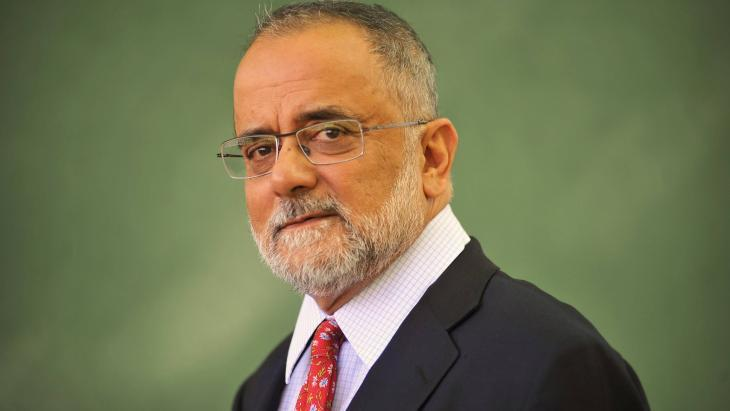
The West is pulling out of Afghanistan after 20 years, but the conflict remains – and the Taliban are stronger than they have been for a long time. And now? The renowned Taliban expert Ahmed Rashid talks to Tobias Matern about mistakes made by the West and the future role of the Taliban in Afghanistan
The West is leaving Afghanistan – have the USA and its allies achieved their goals?
Ahmed Rashid: They have achieved the goal of pushing back international terror, but they have not brought peace or stability to Afghanistan. The country does not reward occupiers; it hasn’t for centuries. The Taliban benefitted from having a safe haven that helped them both to seize power in Kabul in the 1990s and to recover so well following the fall of their regime in 2001.
You mention the neighbouring country of Pakistan. The government in Islamabad keeps insisting that its influence on the Taliban is not as massive as the West claims.
Rashid: I would disagree with that. The whole Taliban leadership lives there, they are married to Pakistani women, their children go to school there, many of their children have university degrees and work there. When the Taliban visit Pakistan, they head straight to the city of Quetta to co-ordinate with their leaders there.
The Taliban ruled Afghanistan with a hard hand from 1996 to 2001. Have they changed since?
Rashid: They have modernised, but that does not apply to their war strategy. And they are still committed to establishing an Islamic legal system, which other Afghans will not accept.
The West has been in Afghanistan for 20 years, and the country is still not safe. What went wrong?
Rashid: The Americans were completely devoid of any strategy. They did not pursue a clear military, economic or political plan. The war in Iraq [started in 2003; Editor’s note] subsequently diminished the U.S. leadership role in Afghanistan, leaving all planning to the United Nations. But I think the West’s mistakes go back further: they ignored the Taliban in the 1990s and did not see them as a threat. They did not seek any rapprochement at the time. By the time the Taliban took Kabul in 1996, the international community had completely turned its back on Afghanistan.
With what consequences?
Rashid: The regional powers were allowed to arm and supply money to their preferred factions in the country. Many countries got in on the act – Iran, Pakistan, Russia, the Central Asian states; a scramble for Afghanistan emerged. After the fall of the Taliban in 2001, the West then made the mistake of ignoring and pushing the Taliban aside, rather than reaching out to them. Pakistan then defined its own strategic interest as reviving the Taliban.
The Taliban defied the West militarily and then surprised it diplomatically by agreeing with the Americans to withdraw.
Rashid: They have learned. For example, the Taliban have become better at handling the media, which they banned completely in the 1990s. Now they use the digital arena for their own purposes. They are far more cultured. They have had the opportunity to travel, to visit other countries, to forge alliances. However, all members of the international community and also the regional powers have adopted the clear stance that the Taliban’s vision of re-establishing an Islamic emirate according to their own rules is unacceptable.
So far, the Taliban have mostly emphasised what they don’t want, for example, they don’t want to share power with the Kabul government.
Rashid: That is one of the reasons the talks between the Taliban and the Afghan government collapsed. We still don’t know exactly what the Taliban want. Their comments on the future of Afghanistan are puzzling. So far, they are vehemently against elections, saying that Islam does not allow it. In doing so, they are probably recognising that they are, in fact, not particularly popular in Afghanistan.
